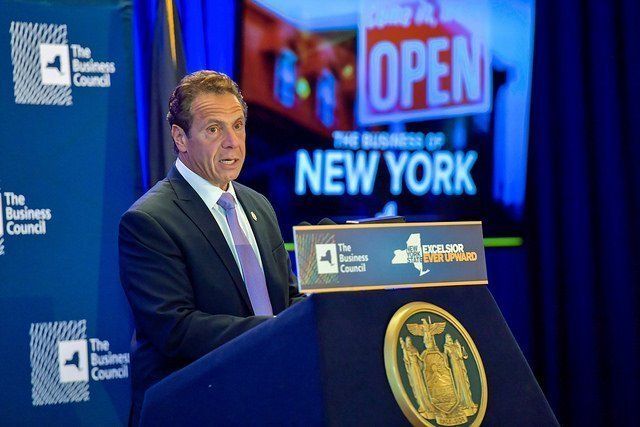New York, NY - December 6, 2018 - Governor Andrew M. Cuomo today announced $15 million has been awarded to 32 high-need school districts to increase access to high-quality pre-kindergarten for over 2,000 three- and four-year-old children across New York. This funding will support the expansion of pre-kindergarten to high-need or underserved districts as part of the state's ongoing efforts to promote early education and improve the academic future for all students.
"New York is committed to ensuring every child gets a fair shot at a high-quality education," Governor Cuomo said. "This funding will help level the academic playing field for children in underserved communities and put students on a path toward opportunity and success."
"Having access to an affordable, quality education is important, especially at an early age," said Lieutenant Governor Kathy Hochul. "This funding for pre-K programs across the state will provide access to high-need school districts and ensure that every child is given an equal opportunity. We're committed to providing all children and families with an early childhood education to position them for future success."
Funding was awarded to school districts based on the quality of the application and other factors, including district and student need, efforts to target the highest need students, and maximize the total number of children served in pre-kindergarten programs. This additional $15 million will ensure New York continues to support its youngest students by supporting the expansion of pre-kindergarten into high-need districts, including those where there are currently no pre-kindergarten seats.
Since 2011, Governor Cuomo has more than doubled the state's commitment to early childhood education to improve the academic future of young people across New York. In 2013, Governor Cuomo created the state's first full-day pre-kindergarten seats, and in 2015, New York expanded pre-kindergarten to serve three-year-olds for the first time. New York's commitment to pre-kindergarten is now over $800 million annually, serving 120,000 three- and four-year-old students each year with universal pre-kindergarten offered at no cost to families.
Board of Regents Chancellor Betty A. Rosa said, "We must help provide opportunities for a high-quality start in education for our youngest learners, so they can stay on the path to success later in life. The Board of Regents and I have long made early learning a top priority. We're grateful to Governor Cuomo for advancing this important recommendation of the Early Childhood Workgroup's Blue Ribbon Committee, which is a key part of our efforts to give all New York's children the tools and opportunities for lifelong academic and social emotional success."
State Education Commissioner MaryEllen Elia said, "New York's investment in prekindergarten has grown substantially and increasing access to high-quality early childhood education programs remains a priority for the Department and the Board of Regents. Our work with the Governor and Legislature to ensure that our youngest students and their families receive the necessary services and opportunities at the earliest stages of life is critical to the future of the children of this state. We must continue to strive to better meet the needs of children, families, school districts and early childhood providers across the state."
Early learning through pre-kindergarten can bridge achievement gaps and provide benefits in the earliest stages of youth and throughout adulthood. Studies from the National Institute for Early Education Research show that children who participate in high quality early childhood education programs have higher cognitive test scores from the toddler years to age 21, higher academic achievement in both reading and math, and are more likely to attend a four-year college and be gainfully employed.










